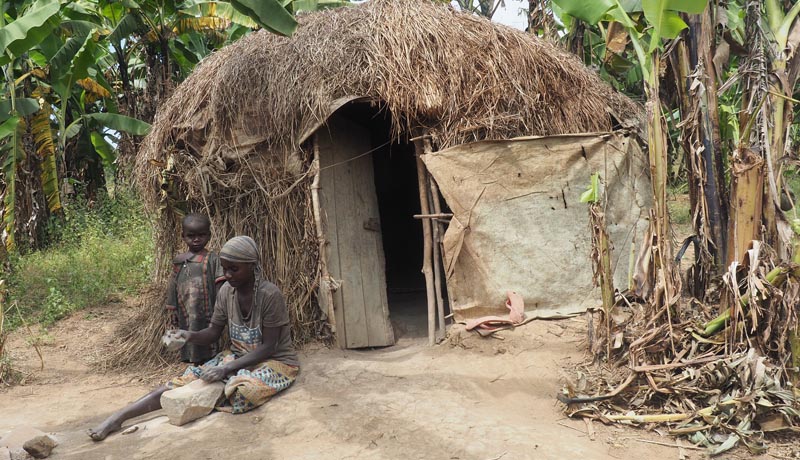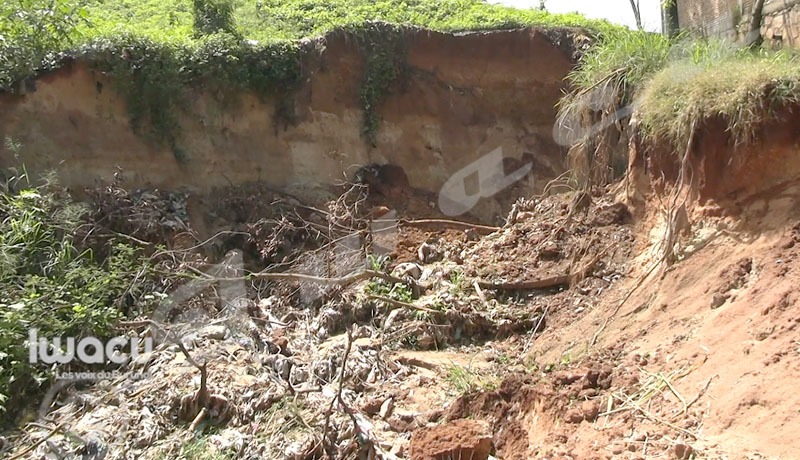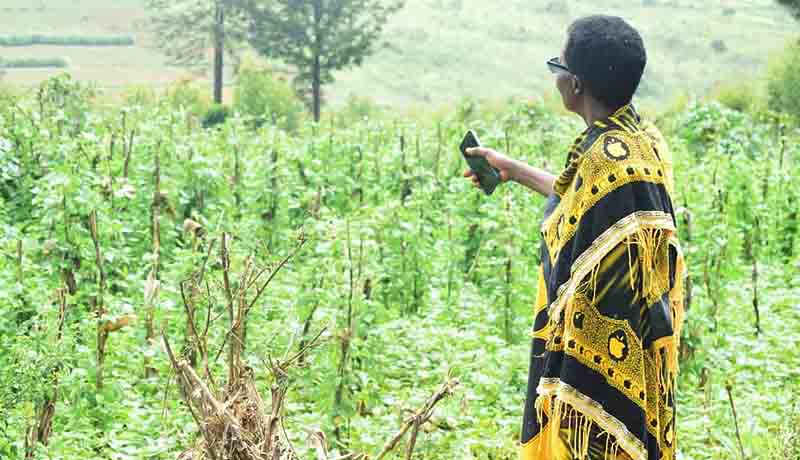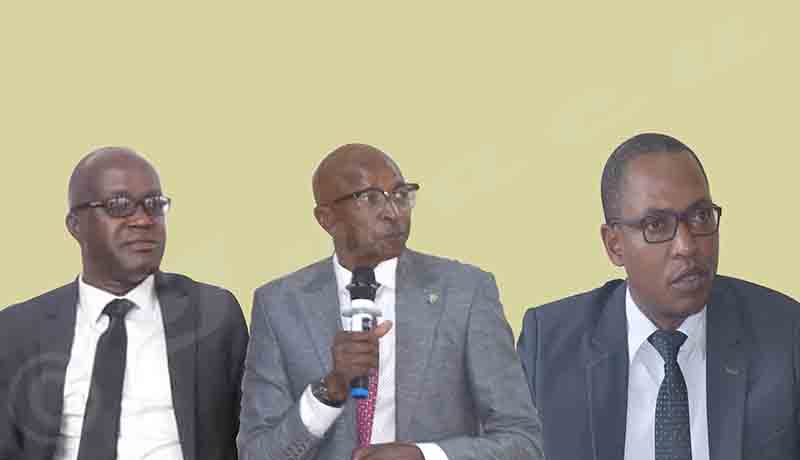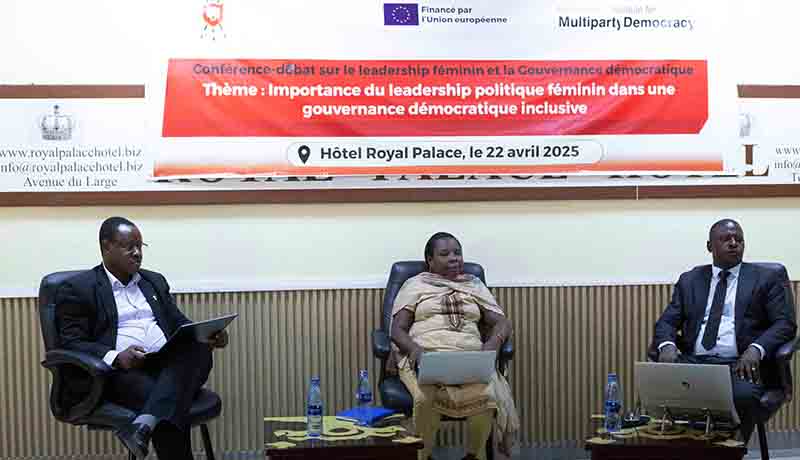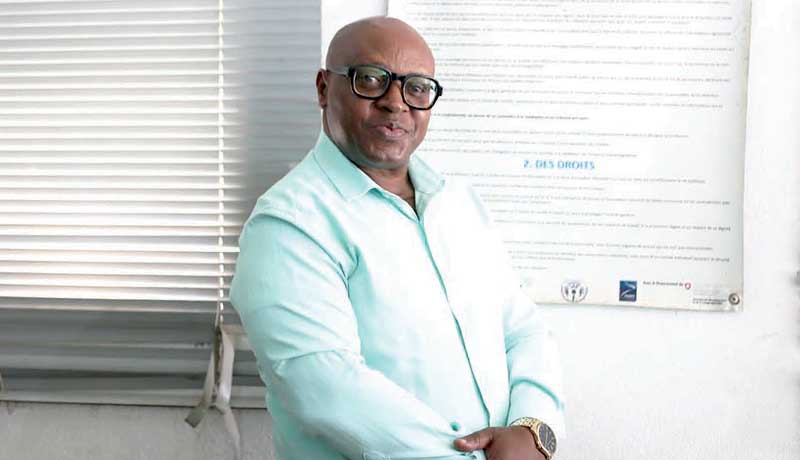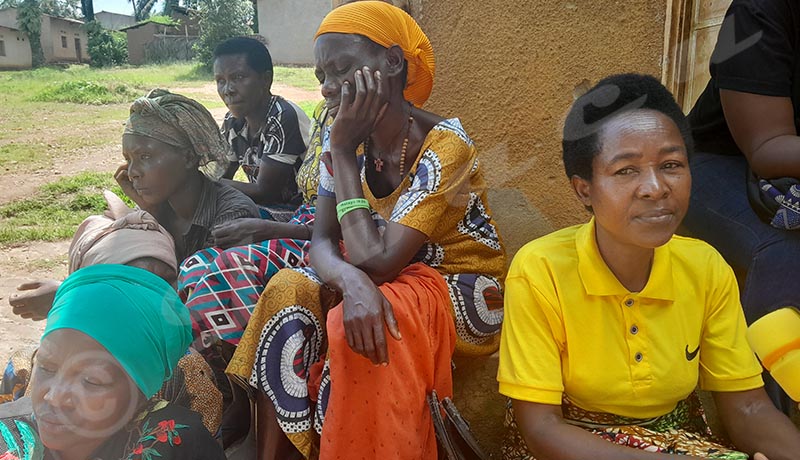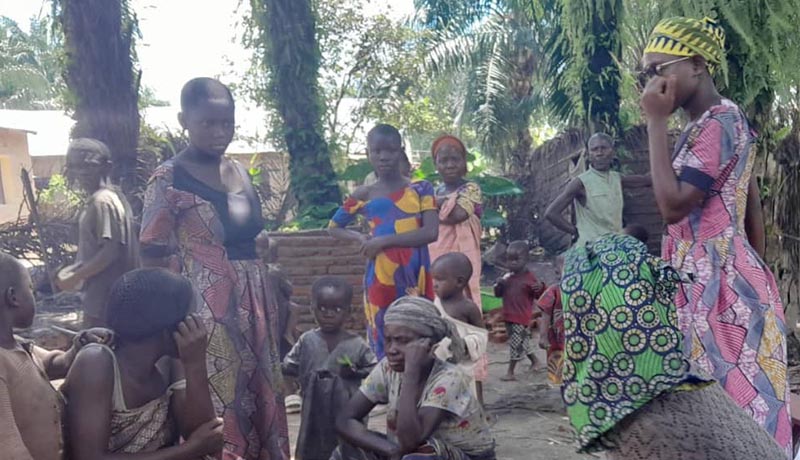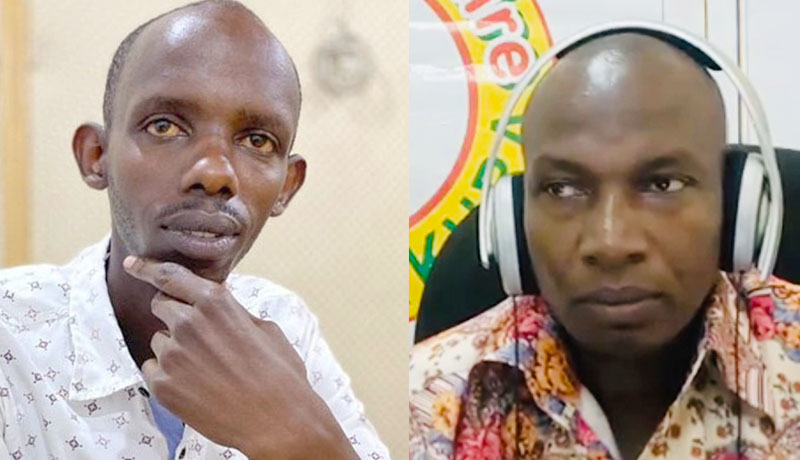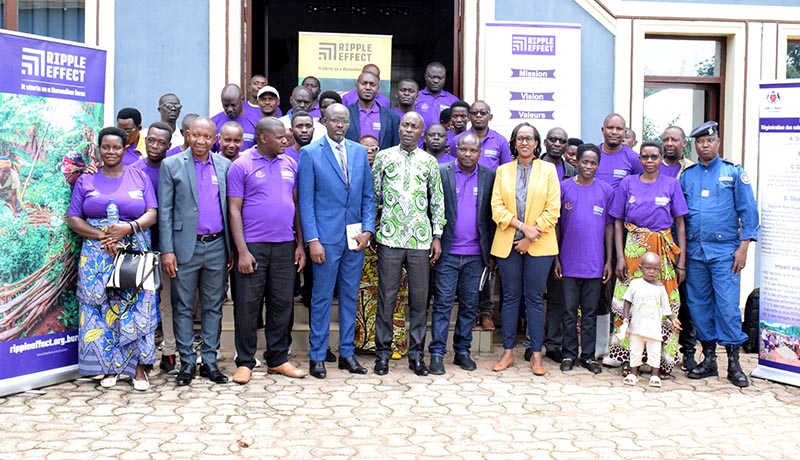The Cash for Jobs project, funded by the World Bank’s International Development Association (IDA), has already finished with choosing beneficiaries in all localities of Burundi. Future beneficiaries of this project in the provinces of Ruyigi and Gitega plan to do income-generating activities to overcome extreme poverty in their households.
Worth $150 million and implemented over five years, the project aims at reducing poverty by protecting vulnerable populations through cash transfers and accompanying measures that will help improve the country’s human capital indicators. It will also promote economic opportunities through access to productive inclusion initiatives and jobs.
Future beneficiaries will receive BIF 72, 000 every two months for a period of 24 months. In addition to cash transfers, the project includes a training component for beneficiaries in various areas that will enable them to flourish.
The households chosen to benefit from the Cash for Jobs project must be the most vulnerable compared to other households in their neighborhoods. They must also have a child under five and a national identity card.
“7,951 households will benefit from the support of this project in the province of Ruyigi,” says Ferdinand Bandiyiminsi, representative of the project in the same province.
According to him, cash transfers will enable beneficiaries to undertake income-generating activities, trade and invest in agriculture and livestock for the development of their families.
In its implementation, the project started with setting up community-based committees made up of seven members who helped in choosing and collecting data from beneficiaries. Those committees will also participate in the supervision of the beneficiaries of this project.
According to Ferdinand Bandiyiminsi, the project has already chosen beneficiaries in different neighborhoods: “During this operation, the population was asked to choose the most vulnerable people themselves to avoid cheating. Afterwards, we proceeded with community validation in the presence of the local administration, religious denominations and civil society to make sure that the beneficiaries are really the most vulnerable.”
Extreme poverty among future beneficiaries of the project.
From the Batwa community (indigenous community), Consolate Bangendane lives in a hut with her husband and their seven children in Ruyigi commune. His house has no rooms and may collapse at any time. Parents and their children sleep together in a narrow space.
“My family lives a miserable life. We hardly manage to have enough food. Our clothes are dirty and torn because we can’t afford buying a soap to wash them. When I go to sell pots, I sometimes come back home with only a kilogram of beans,” says Consolante Bandengane, busy preparing the raw material to make pots.
At night, she adds, the oldest children seek shelter at neighbors: “The eldest is 18 years old. We sleep with the little ones on the floor, as we don’t have mats or blankets. In such conditions, my husband and I no longer have intimacy.” She regrets that some children have dropped out of school due to poverty.
With cash transfers, Consolante Bandengane plans to buy clean clothes and kitchen utensils. She will also farm goats and pigs; and conduct a petty trade of foodstuffs. According to her, the project’s support will enable her family to build a comfortable house.
The family of Jeanine Kwizerimana, from the same locality, lives in almost the same situation. This family returned to Burundi in 2019 after years of exile in Tanzania. “The Cash for Jobs project chose me because I live in extreme poverty. My home should not be used as a shelter for humans,” says the mother of four.
Her children are malnourished and their cheeks have started to swell. They no longer go to school due to the lack of food at home: “Hungry, they refuse to go to school. We often eat once a day, a food without salt or oil. When the quantity of food is minimal, we prefer to leave it to the children.”
To meet other family needs, Jeanine Kwizerimana and her husband have to work for the neighbors: “We are paid BIF 2,500 per day per individual. This money is not enough to meet all the family needs and undertake income-generating activities.”
With the support of the project, Jeanine Kwizerimana, 25, plans to buy a plot of land and invest in agriculture to increase production and improve life conditions of her family. She also thinks of rehabilitating her house which is very small for a family.
Invest in livestock and small business to improve family conditions
Nowadie Nshimirimana, mother of four children, resident of Kirangara locality, Butaganzwa commune in Ruyigi province, plans to buy, with cash transfers, metal sheets to rehabilitate her house which is in a terrible state. She also plans to do a small business to support her family.
She says her family lives in unbearable conditions: “We do daily work for our rich neighbors. This means that we have no money to save. When I fall sick and can no longer work to earn money, the situation in the family worsens.”
As for the health care of her children, she asks neighbors for medicine when a child gets sick, due to the lack of means to pay for treatment at the hospital.
Besides, she regrets that her family has a small land for agriculture, which means that production is not sufficient to meet her family’s needs.
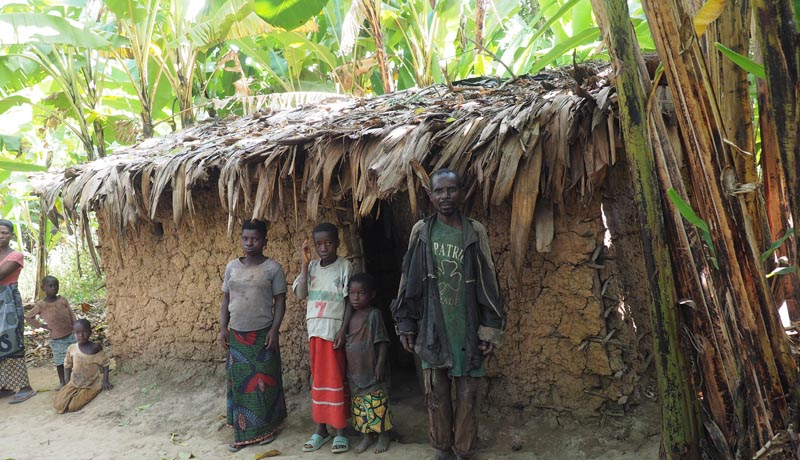
Leonidas Sindaruhuka from the same locality lives in extreme poverty. With dirty and torn clothes, he lives with his mentally disordered wife and four children in a small house on the verge of collapse. He too has to work for his neighbors to earn money and feed his family.
Three of her children are already of school age, but they do not go to school due to the poverty that rages in his family. When they are sick, their father also asks his neighbors for medicine.
With cash transfers, Leonidas Sindaruhuka plans to do trade of vegetables and other foodstuffs to combat poverty. He also intends to buy metal sheets to renovate his house.
As for Chantal Nduwimana from Rusagara area, Makebuko commune in Gitega province, farming pigs and chickens as soon as she receives support from the project is a priority: “I work for a neighbor the whole day to earn only BIF 2 000 (less than one dollar). These monetary transfers will help me change my life conditions and get out of this misery.”
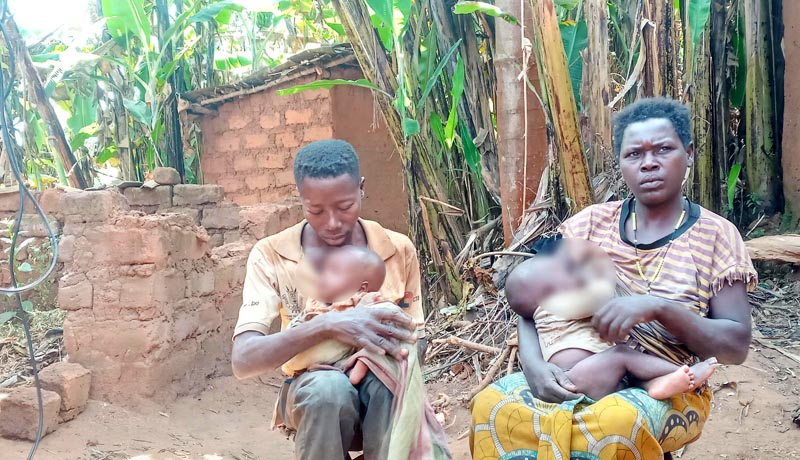
Same expectations with Nshimirimana, resident of Giheta commune in Gitega province. Mother of three children including two twins, her family eats once a day and lacks clean clothes: “Before the birth of these twins, I could work and earn money. At the moment, I have to stay at home to take care of my children in these miserable conditions. My husband works alone and cannot satisfy the needs of the family.”
With cash transfers from Cash for Jobs project, she will do trade of foodstuffs and farm pigs: “With breeding, I will have organic manure and increase agricultural production.”
At least 145,000 households in the whole country will benefit from the project’s interventions distributed as follows: 25,000 urban households economically affected by Covid-19 in six urban centers namely Bujumbura City, Gatumba, Gitega, Rumonge, Kayanza and Ngozi. 100,000 extremely poor rural households will receive cash transfers and accompanying measures to strengthen their human capital. Finally, 20,000 refugee and host community households will benefit from the project.
